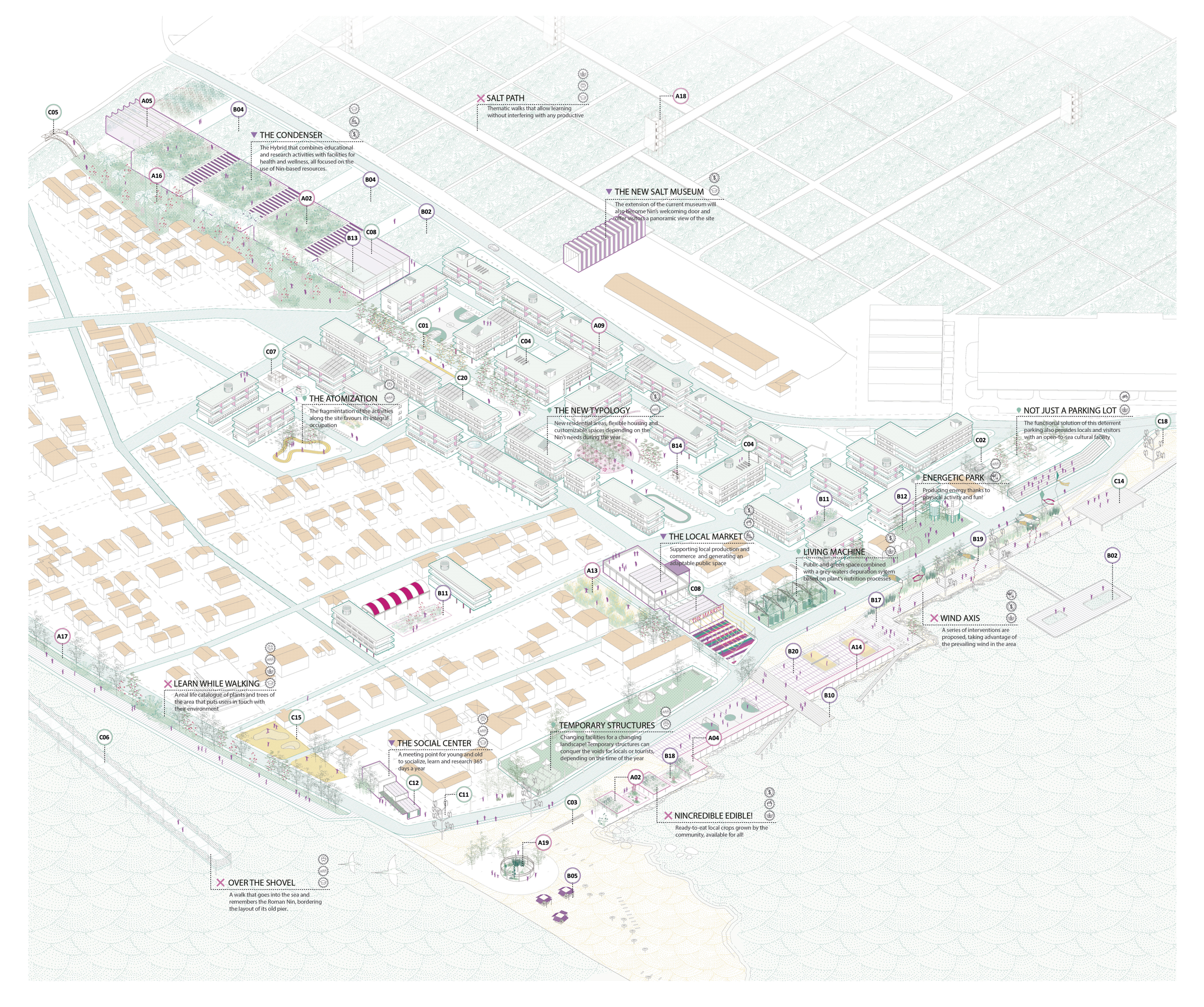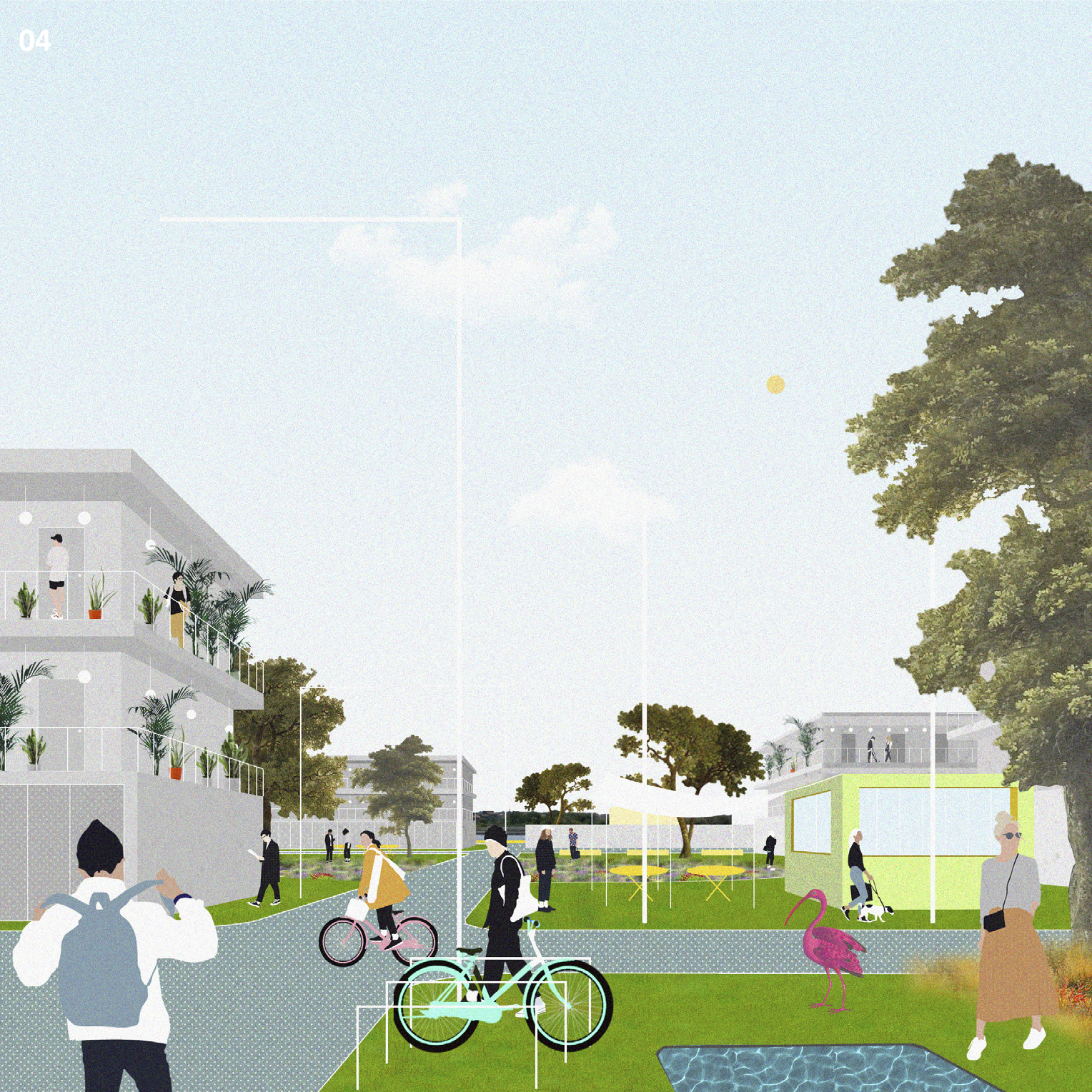
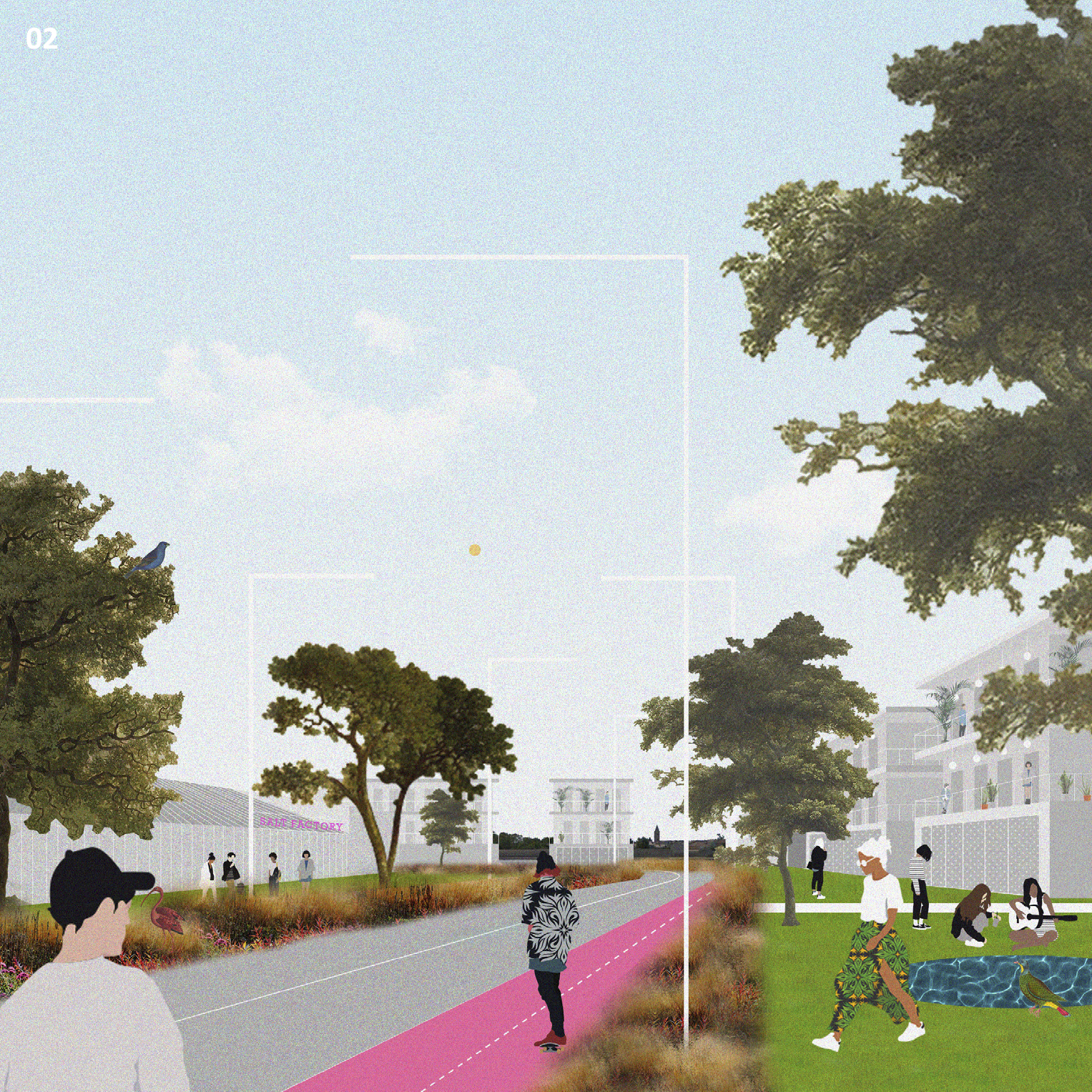

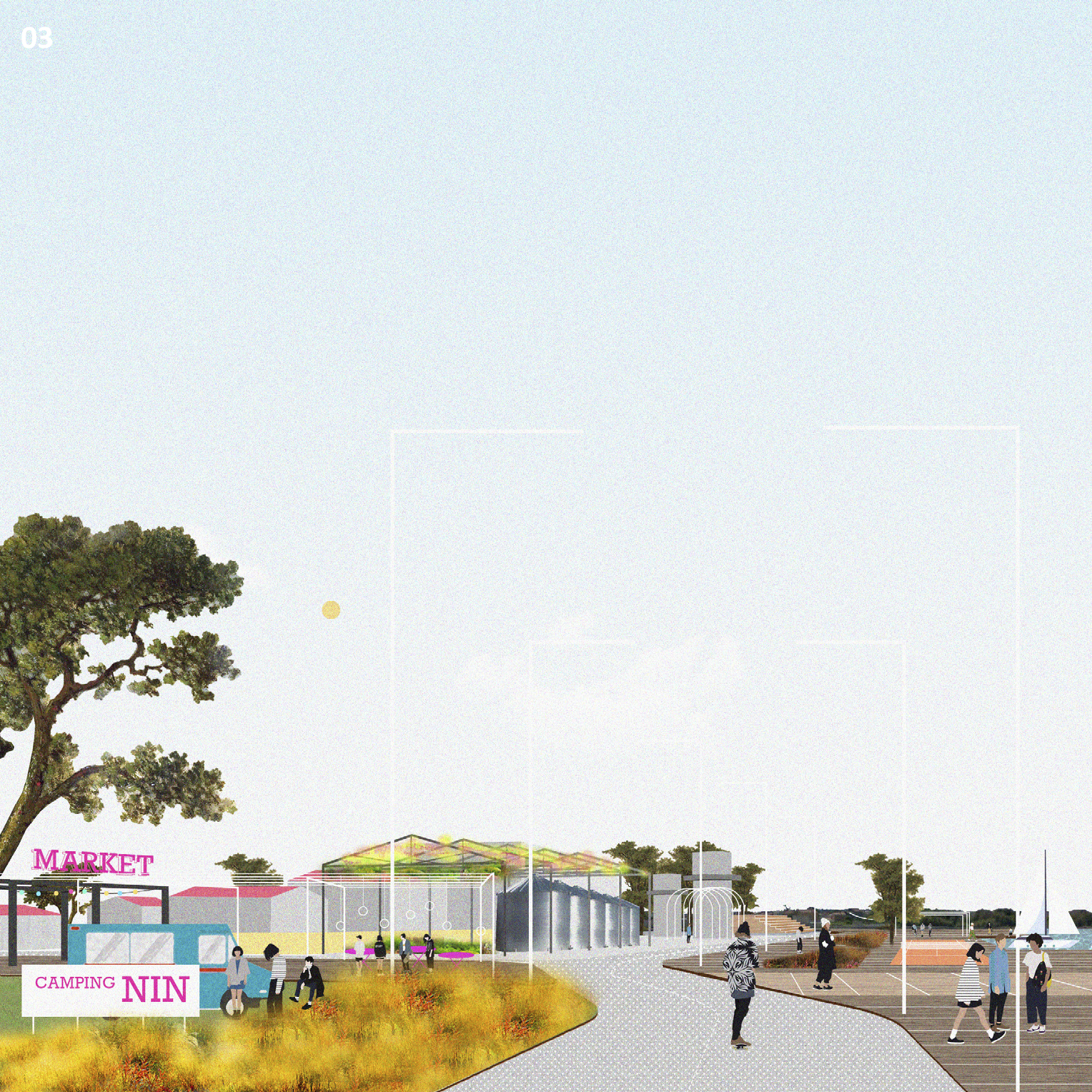
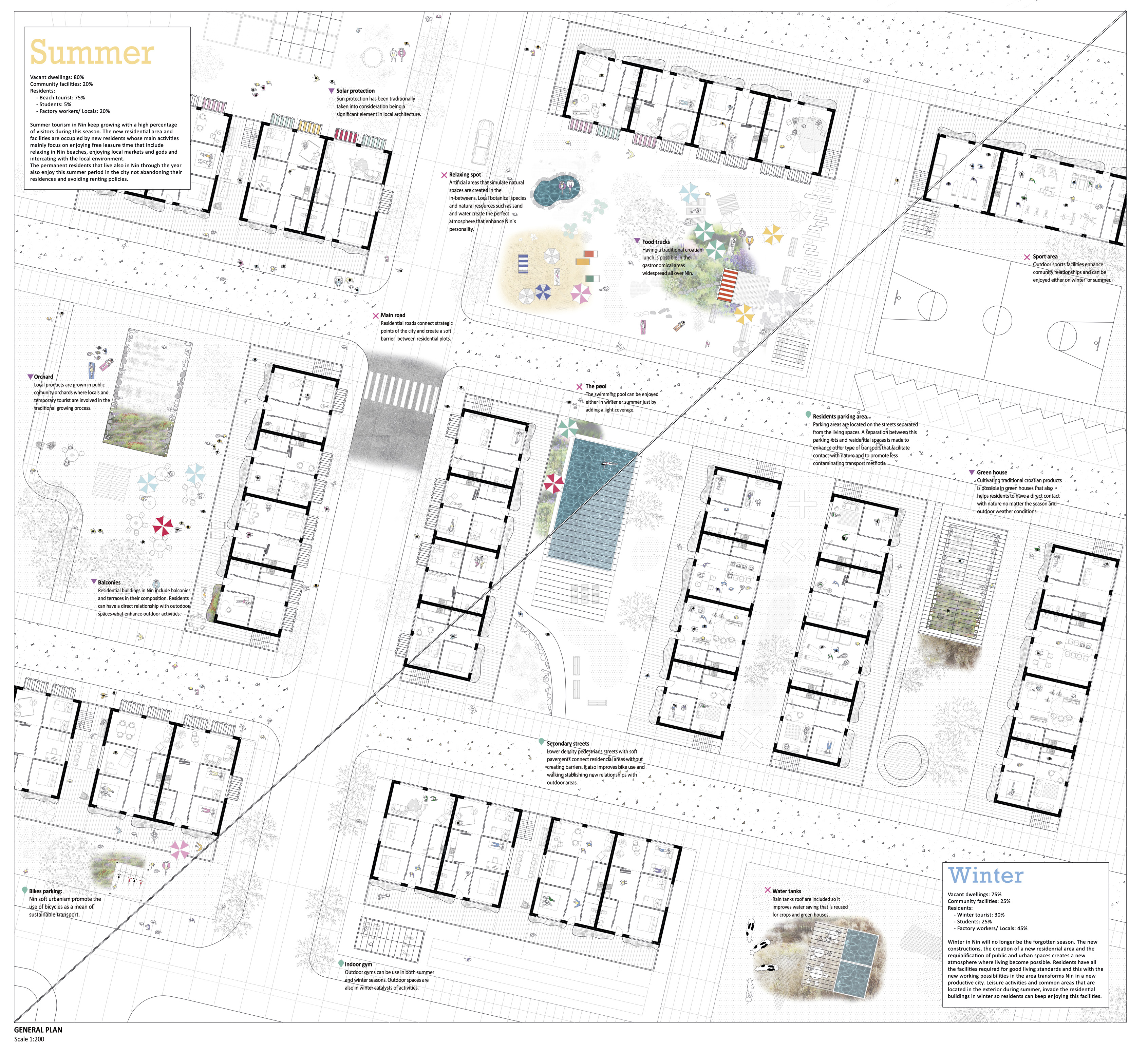
+
Nintopia
Nin, Croatia.
Europan 15, Productive Cities
ft. Ángela Molina, Eduardo Cilleruelo, Daniel Spinelli, Irene Rodríguez, Laura Puchades
2019
Nin is a coastal town in Croatia, that even having great assets and potencial to be a dynamic and vibrant city, represents a monothematic economy based in summer tourism, without a proper urban, cultural, educational and economic infrastructure that makes possible for people to stay during the whole year. NINtopia is a proposal that pretends to solve the existing problems by taking advantage of the local resources as a way to invert the socio-economic reality and implement a year lasting urban model, enabling the possibility of thinking about moving to Nin for longer periods of time, living sorrounded by an outstanding landscape.
The activation of the different local resources combined with an integral intervention on the existing Nin should transform the town into an attractive spot for different kind of people: summer tourists that already have a house there, different kind of tourists that include from one day landscape visitors or health tourism), families that look for a nice location to grow up their kids, workers attracted by the aquaculture industry or even retired people looking for a charming place to relax and enjoy their life.
![]()
In order to achieve that, NINtopia finds some possibilities that might act as catalyts for a proper and sustainable development of the area. The existance of an active economy, even if it is based on a seasonal tourism, should be a starting point to be complemented. The diversification of this summer based economy through programmatic complements, as well as flexible housing should attract new profiles that progressively should stablish themselves as permanent residents in the area. Another complementing anchor point is the development of economic dynamics based in water related economy. The presence of the Cromaris factory could be an opportunity as well for small-medium businesses to locate their activity within the area. The promotion of the production of seafood and related processed products should become an attraction for both population and the creation of a regional cultural quality seal, taking advantage of the tradition of fishery and acquaculture within the region.
All these actions that are conceived with the intention of attracting population that remains in the area during the whole year, should happen within an urbanism that is respectful with the environment, enhancing and taking care of the mind-blowing existing environment, giving it back to the people, maintaining cars and traffic as far as possible, and introducing clean and green strategies for urban movement, energy captation and the management of natural resources.
![]()
![]()
![]()
Nintopia
Nin, Croatia.
Europan 15, Productive Cities
ft. Ángela Molina, Eduardo Cilleruelo, Daniel Spinelli, Irene Rodríguez, Laura Puchades
2019
Nin is a coastal town in Croatia, that even having great assets and potencial to be a dynamic and vibrant city, represents a monothematic economy based in summer tourism, without a proper urban, cultural, educational and economic infrastructure that makes possible for people to stay during the whole year. NINtopia is a proposal that pretends to solve the existing problems by taking advantage of the local resources as a way to invert the socio-economic reality and implement a year lasting urban model, enabling the possibility of thinking about moving to Nin for longer periods of time, living sorrounded by an outstanding landscape.
The activation of the different local resources combined with an integral intervention on the existing Nin should transform the town into an attractive spot for different kind of people: summer tourists that already have a house there, different kind of tourists that include from one day landscape visitors or health tourism), families that look for a nice location to grow up their kids, workers attracted by the aquaculture industry or even retired people looking for a charming place to relax and enjoy their life.

In order to achieve that, NINtopia finds some possibilities that might act as catalyts for a proper and sustainable development of the area. The existance of an active economy, even if it is based on a seasonal tourism, should be a starting point to be complemented. The diversification of this summer based economy through programmatic complements, as well as flexible housing should attract new profiles that progressively should stablish themselves as permanent residents in the area. Another complementing anchor point is the development of economic dynamics based in water related economy. The presence of the Cromaris factory could be an opportunity as well for small-medium businesses to locate their activity within the area. The promotion of the production of seafood and related processed products should become an attraction for both population and the creation of a regional cultural quality seal, taking advantage of the tradition of fishery and acquaculture within the region.
All these actions that are conceived with the intention of attracting population that remains in the area during the whole year, should happen within an urbanism that is respectful with the environment, enhancing and taking care of the mind-blowing existing environment, giving it back to the people, maintaining cars and traffic as far as possible, and introducing clean and green strategies for urban movement, energy captation and the management of natural resources.

